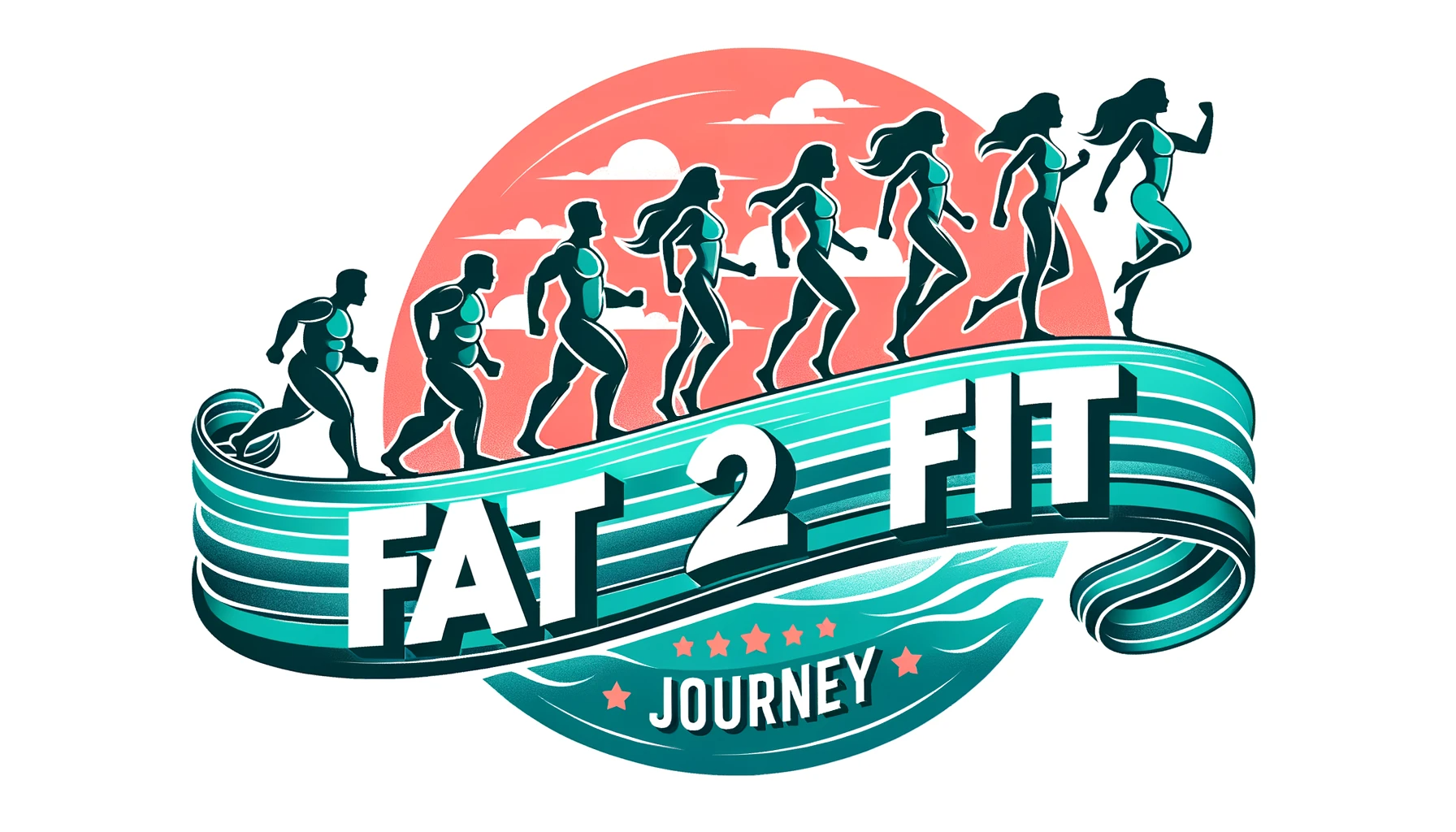Are you looking for a way to shed those extra pounds without sacrificing your favorite foods? Look no further because the Keto Diet might just be the solution you’ve been searching for. With its low-carb, high-fat approach, this diet has gained popularity for its ability to kickstart weight loss and boost energy levels. Say goodbye to constantly counting calories and hello to indulging in delicious meals while still achieving your health goals. Embark on a journey towards a healthier and happier you with the Keto Diet.

Table of Contents
What is a Keto Diet
Definition
A Keto Diet, short for ketogenic diet, is a low-carb, high-fat diet that has gained popularity for its potential health benefits. It focuses on consuming foods that are low in carbohydrates and high in healthy fats, putting the body in a metabolic state called ketosis. In this state, the body switches its primary source of fuel from glucose (derived from carbohydrates) to ketones (produced by the liver from fats). The goal is to induce and maintain a state of ketosis to reap the various benefits associated with this dietary approach.
Purpose
The main purpose of a Keto Diet is to encourage the body to burn fat for energy rather than relying on carbohydrates. By drastically reducing carbohydrate intake and increasing fat intake, the body is forced to enter a state of ketosis. This metabolic state not only aids in weight loss but also offers numerous other health benefits, such as improved mental focus, increased energy levels, controlled hunger, and normalized blood sugar levels.
Principles
The Keto Diet operates on several fundamental principles. First, carbohydrate intake is limited to a specific daily allowance, usually around 20-50 grams per day. This restriction ensures that the body is deprived of glucose, which is its primary energy source. As a result, the body turns to alternative fuel sources, primarily fats, which are converted into ketones. Second, the intake of healthy fats is increased to provide a substantial portion of daily caloric intake. These fats may include avocados, olive oil, coconut oil, and nuts. Lastly, the diet emphasizes moderate protein intake to prevent excessive protein conversion into glucose, which could hinder ketosis. Overall, these principles aim to achieve and maintain a state of ketosis for optimal health benefits.
Benefits of a Keto Diet
Weight Loss
One of the main benefits of a Keto Diet is its effectiveness in promoting weight loss. By significantly reducing carbohydrate intake, the body is forced to burn stored fat for energy, leading to a more efficient fat-burning process. Additionally, the increase in fat and protein intake helps to promote satiety, reducing overall caloric consumption and aiding in weight management.
Improved Mental Focus
Another notable benefit of the Keto Diet is improved mental focus and clarity. Ketones, the byproduct of fat breakdown, act as an alternative fuel source for the brain. Unlike glucose, which can cause energy spikes and crashes, ketones provide a more stable and consistent energy supply to the brain, resulting in enhanced cognitive function and mental clarity.
Increased Energy
By utilizing fat as its primary source of fuel, the Keto Diet can provide a steady and sustained energy supply throughout the day. Unlike a high-carbohydrate diet that can lead to blood sugar fluctuations and energy crashes, the Keto Diet helps stabilize blood sugar levels, preventing energy dips and promoting sustained energy levels.
Normalization of Blood Sugar Levels
The Keto Diet has shown to be beneficial for individuals with diabetes or those looking to manage their blood sugar levels. Since the diet restricts carbohydrate intake, it leads to lower blood sugar and insulin levels. This can be particularly helpful for people with type 2 diabetes and insulin resistance, as it can improve insulin sensitivity and reduce the need for medication.
Reduced Inflammation
Chronic inflammation is associated with various health conditions such as heart disease, diabetes, and certain types of cancer. The Keto Diet has been found to have anti-inflammatory effects, mainly due to the reduction in carbohydrate intake. By minimizing insulin spikes and stabilizing blood sugar levels, the diet helps reduce the production of inflammatory markers in the body, leading to a decrease in overall inflammation.
Controlled Hunger
The Keto Diet can also help control hunger and cravings, making it easier to adhere to a calorie-restricted eating plan. Fat and protein are highly satiating, keeping you feeling fuller for longer periods of time. By reducing carbohydrate intake, which can lead to spikes and crashes in blood sugar levels, the Keto Diet can help stabilize appetite and prevent excessive snacking or overeating.
Improved Heart Health
Contrary to common misconceptions about high-fat diets, the Keto Diet has been shown to offer potential benefits for heart health. By promoting weight loss and reducing the consumption of unhealthy fats and refined carbohydrates, the diet can improve several risk factors associated with heart disease, such as high blood pressure, high triglycerides, and low levels of HDL (good) cholesterol.
Reduced Risk of Metabolic Syndrome
Metabolic syndrome is a cluster of conditions that increase the risk of developing heart disease, stroke, and type 2 diabetes. These conditions include abdominal obesity, high blood pressure, high blood sugar levels, and abnormal cholesterol levels. The Keto Diet addresses many of these risk factors by promoting weight loss, improving insulin sensitivity, and reducing inflammation, thereby reducing the overall risk of developing metabolic syndrome.
How Does the Keto Diet Work
Transitioning into Ketosis
To achieve ketosis, it is essential to transition from a carbohydrate-dependent metabolism to a fat-dependent metabolism. This transition typically takes a few days to a few weeks. During this time, carbohydrate intake is significantly reduced, while fat intake is increased. The body begins to deplete its glycogen stores and shifts its energy production to fat metabolism. As the liver breaks down fats, it produces ketones, which serve as an alternative energy source for the body and brain. Once the body reaches a certain level of ketone production, it enters a state of ketosis.
Ketosis and Fat Burning
In ketosis, the body becomes highly efficient at burning fat for fuel. With limited carbohydrate availability, the body turns to stored fat and dietary fat as its primary energy source. This leads to rapid fat burning and weight loss. Additionally, ketosis prompts the liver to produce ketones, which are released into the bloodstream and transported to various tissues to be used as fuel. This process further enhances fat burning and contributes to the overall metabolic benefits of the Keto Diet.
Ketones and Brain Fuel
The brain typically relies on glucose for energy. However, during ketosis, the brain can efficiently utilize ketones for fuel. Ketones are a clean, efficient energy source that does not produce the same energy fluctuations and crashes associated with glucose. This results in improved mental clarity, focus, and overall brain function. The brain’s utilization of ketones in ketosis is thought to promote neuroprotection and potentially have therapeutic benefits for certain neurological conditions, such as epilepsy.
Regulation of Insulin and Blood Sugar
Carbohydrate consumption leads to an increase in blood glucose, which triggers the release of insulin. Insulin acts to regulate blood sugar by facilitating the uptake of glucose into cells. However, excessive carbohydrate intake can lead to chronically elevated insulin levels and insulin resistance. In contrast, the Keto Diet restricts carbohydrates, resulting in lower insulin levels. This reduction in insulin helps to stabilize blood sugar levels and improve insulin sensitivity, offering various health benefits, especially for individuals with diabetes or those at risk of developing metabolic conditions.
Foods to Eat on a Keto Diet
Healthy Fats
A Keto Diet relies on the consumption of healthy fats to provide the majority of daily caloric intake. These include fatty fish such as salmon and mackerel, avocados, olive oil, coconut oil, nuts and seeds, and grass-fed butter. These fats are essential for maintaining energy levels, promoting satiety, and providing necessary nutrients.
Protein Sources
Protein plays a crucial role in a Keto Diet as it helps to preserve lean muscle mass while the body primarily burns fat for fuel. Good protein sources on a Keto Diet include lean meats such as chicken, turkey, and grass-fed beef, fatty fish, eggs, and high-quality protein powders.
Low Carb Vegetables
Non-starchy vegetables are an essential part of a Keto Diet because they are low in carbohydrates and high in fiber and essential nutrients. Examples of low-carb vegetables suitable for the diet include spinach, kale, broccoli, cauliflower, zucchini, and bell peppers.
Nuts and Seeds
Nuts and seeds are excellent sources of healthy fats, fiber, and essential minerals. Almonds, walnuts, chia seeds, flaxseeds, and pumpkin seeds are among the options that can be enjoyed on a Keto Diet. These can be consumed as snacks or added to meals and recipes.
Dairy Products
Some dairy products can be included in a Keto Diet, as they provide protein, healthy fats, and essential vitamins and minerals. Options such as full-fat cheese, Greek yogurt, and high-fat cream can be incorporated into the diet in moderation. However, it is essential to be mindful of carbohydrate content, as some dairy products may contain added sugars.

Foods to Avoid on a Keto Diet
High Carb Foods
To maintain ketosis, it is crucial to avoid high-carb foods. This includes sugary treats, refined grains, pasta, bread, rice, potatoes, and most fruits (except for small portions of berries).
Sugary Foods and Beverages
Sugary foods and beverages are high in carbohydrates and can quickly kick the body out of ketosis. This includes candy, soda, fruit juices, sports drinks, and desserts containing refined sugars.
Grains and Starches
Grains and starches are carbohydrate-rich foods that are best avoided or limited on a Keto Diet. This includes wheat, corn, oats, rice, and products made from grains such as bread, pasta, and cereals.
Certain Fruits
While fruits are generally healthy, some fruits are relatively high in carbohydrates and can hinder ketosis. Fruits such as bananas, grapes, mangos, and oranges are best avoided or consumed in small portions on a Keto Diet. Instead, choose lower-carb options like berries.
Processed Foods
Processed foods, including chips, crackers, cookies, and pre-packaged snacks, are usually high in unhealthy fats, refined grains, and added sugars. These should be avoided on a Keto Diet due to their detrimental effect on blood sugar levels and overall health.
Unhealthy Fats and Oils
While healthy fats are a staple of the Keto Diet, it is crucial to avoid unhealthy fats and oils. This includes foods cooked in hydrogenated oils, trans fats, and refined vegetable oils like soybean oil, canola oil, and sunflower oil. Instead, opt for healthier alternatives like olive oil, coconut oil, and avocado oil.
Keto Diet Meal Plan
Breakfast
A Keto Diet breakfast could include options such as scrambled eggs cooked in butter or coconut oil, avocado, spinach, and bacon. Alternatively, a breakfast bowl consisting of chia seeds, unsweetened almond milk, berries, and a sprinkle of nuts or seeds can be a filling and nutritious choice.
Lunch
For lunch, a Keto Diet meal might consist of a salad with a variety of leafy greens, topped with grilled chicken or salmon, olive oil dressing, and a sprinkle of cheese. Another option could be a lettuce wrap filled with turkey or chicken, avocado, and veggies.
Dinner
Dinner on a Keto Diet could include a serving of roasted salmon or grilled steak paired with non-starchy vegetables like broccoli or cauliflower. Add a side of cauliflower rice or zucchini noodles for a satisfying low-carb alternative to traditional grains.
Snacks
Keto-friendly snack options include a handful of mixed nuts, celery sticks with almond butter, hard-boiled eggs, or cheese slices paired with cucumber slices. These snacks provide a balance of healthy fats, protein, and fiber while minimizing carbohydrate intake.
Beverages
Water is the best beverage choice on a Keto Diet as it hydrates the body without adding any carbohydrates or calories. Other suitable options include unsweetened tea, coffee with a splash of heavy cream, or sugar-free sparkling water. It is crucial to avoid high-sugar beverages like soda and fruit juices.

Tips for Success on a Keto Diet
Stay Hydrated
Drinking enough water is crucial on a Keto Diet, as the body tends to excrete more water in the initial stages of ketosis. Staying well-hydrated helps prevent dehydration, supports proper digestion, and promotes overall well-being.
Monitor Electrolyte Intake
Reducing carbohydrate intake can affect electrolyte levels in the body. It is important to monitor and replenish electrolytes, such as sodium, potassium, and magnesium, to prevent imbalances and minimize potential side effects.
Gradual Transition
Transitioning into a Keto Diet gradually can help the body adjust more easily and minimize potential side effects such as the keto flu. Gradually reducing carbohydrate intake over several weeks allows the body to adapt and become more efficient at burning fat for fuel.
Be Mindful of Macronutrient Ratios
To effectively maintain ketosis, it is essential to track macronutrient intake. Monitoring the ratio of carbohydrates, fats, and proteins can help ensure the body is in the optimal state for ketosis, leading to the desired health benefits.
Incorporate Physical Activity
Regular physical activity is important for overall health and can enhance the benefits of a Keto Diet. Including activities such as strength training and aerobic exercise can help maintain muscle mass, support weight loss goals, and improve overall well-being.
Listen to Your Body’s Hunger and Fullness Cues
The Keto Diet emphasizes eating when hungry and stopping when satisfied. Paying attention to your body’s hunger and fullness cues helps prevent overeating and promote a healthy relationship with food.
Meal Prepping and Planning
Meal prepping and planning can be beneficial on a Keto Diet, as it helps ensure that you have appropriate meals and snacks readily available. This reduces the temptation to reach for high-carb, unhealthy options when hunger strikes.
Seek Professional Guidance
If you are new to the Keto Diet or have any underlying health conditions, it is advisable to seek guidance from a healthcare professional or a registered dietitian. They can provide personalized recommendations, monitor your progress, and ensure that you are meeting your nutritional needs.
Possible Side Effects of a Keto Diet
Keto Flu
The keto flu is a collection of symptoms that some individuals may experience during the initial stages of transitioning to a Keto Diet. Symptoms may include fatigue, headaches, irritability, nausea, and difficulty concentrating. These symptoms are temporary and can be managed by gradually reducing carbohydrate intake, staying well-hydrated, and replenishing electrolytes.
Digestive Issues
Some individuals may experience digestive issues, such as constipation or diarrhea, when starting a Keto Diet. This is often due to the significant reduction in dietary fiber and changes in gut bacteria. Increasing fiber intake through low-carb vegetables, drinking plenty of water, and considering a fiber supplement can help alleviate these side effects.
Nutrient Deficiencies
Restricting certain food groups on a Keto Diet can increase the risk of nutrient deficiencies. It is important to ensure sufficient intake of vitamins, minerals, and fiber through a well-rounded and varied diet or by using appropriate supplementation if necessary.
Negative Impact on Athletic Performance
While the Keto Diet has shown benefits for endurance athletes, some individuals may experience a temporary decline in physical performance during the initial stages of transitioning to a fat-adapted state. This is due to the body’s adaptation process, but performance usually improves once the body becomes fully accustomed to using fat as a fuel source.
Elevated Cholesterol Levels (Temporary)
A Keto Diet can cause a temporary increase in cholesterol levels, particularly LDL (bad) cholesterol. However, it is important to note that this increase is usually a transient response and does not necessarily indicate an increased risk of heart disease. It is advisable to monitor cholesterol levels over time and consult with a healthcare professional if concerns arise.
Stress on the Kidneys (Not Suitable for Certain Conditions)
The unrestricted intake of protein on a Keto Diet may put stress on the kidneys, especially for individuals with pre-existing kidney conditions. It is crucial to consult with a healthcare professional before starting a Keto Diet if you have any kidney-related concerns or conditions.
How to Overcome Common Challenges on a Keto Diet
Keto Flu Remedies
To overcome the symptoms of keto flu, consider gradually reducing carbohydrate intake over several weeks, staying well-hydrated to prevent dehydration, replenishing electrolytes, and ensuring sufficient rest and sleep.
Addressing Digestive Issues
To address digestive issues, gradually increase fiber intake through low-carb vegetables, stay hydrated, consider adding a fiber supplement if necessary, and allow the body time to adapt to the dietary changes.
Supplementing Essential Nutrients
To prevent nutrient deficiencies, a well-rounded and varied diet is crucial. However, if deficiencies persist, consider appropriate supplementation under the guidance of a healthcare professional or registered dietitian.
Adapting Exercise Routine
During the initial stages of transitioning to a Keto Diet, it is normal to experience a decline in physical performance. However, as the body becomes more fat-adapted, performance usually improves. Gradually adapt your exercise routine to allow for this adaptation period.
Monitoring Cholesterol and Managing Cardiovascular Health
If concerned about elevated cholesterol levels, it is essential to regularly monitor cholesterol levels and consult with a healthcare professional regarding appropriate management strategies. Focus on consuming healthy fats, minimizing processed foods, incorporating exercise, and maintaining a healthy weight to support cardiovascular health.
Seeking Professional Medical Advice
If you are unsure about starting a Keto Diet or have any underlying health conditions, it is advisable to seek professional medical advice. A healthcare professional or registered dietitian can provide personalized guidance, address specific concerns, and ensure your dietary choices align with your health goals.
Conclusion
The Keto Diet is a low-carb, high-fat dietary approach that can offer various health benefits, including weight loss, improved mental focus, increased energy levels, controlled hunger, and normalized blood sugar levels. By entering a state of ketosis, the body becomes highly efficient at burning fat for fuel, resulting in these positive effects. The diet emphasizes the consumption of healthy fats, moderate protein intake, and low-carbohydrate foods while avoiding high-carb and processed options. Adhering to a Keto Diet may require careful planning, monitoring of macronutrient ratios, and attention to potential side effects. Seeking guidance from healthcare professionals can help navigate any challenges and ensure optimal safety and effectiveness on the Keto Diet.
